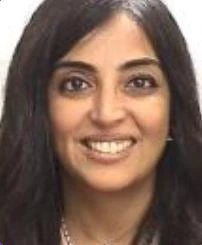 محطة لمعالجة المياه في محافظة البحيرة بمصر،
محطة لمعالجة المياه في محافظة البحيرة بمصر،
Sanitation is a major concern in rural areas of the Nile Delta where the Nile River spreads out and drains into the Mediterranean Sea. With increased water use resulting from water supply connections, the traditional bayaras (sanitation trenches used as septic tanks) are failing particularly in the Nile Delta , where the water table is high and soil percolation is low.
To prevent sewage overflows, households must clean their bayaras frequently (up to once a week), and pay up to EGP 250 every month (about 5% of the average household income) to have them emptied, which in many cases largely exceeds the costs that households would pay for conventional sanitation solutions and is unaffordable for many living in rural areas.
The $550 million Sustainable Rural Sanitation Services program operates in coordination with six water and sanitation companies in the Nile delta governorates of Dakhaliya, Beheira, Sharkiya, Menoufia, Damietta, and Gharbia and finances the companies to achieve fully functional and independently verified sanitation household connections.
At the heart of the program lies an important strategic and institutional reform of the sector. Some of the successes under the strategy and institutional reform pillar, for example, include improvements in procurement procedures, development of Standard Bidding Documents and the Standard Operating Procedures for land acquisition. These are being successfully applied not only by the six companies targeted under the program but are also having positive ripple effect on other companies where we’re seeing how these reforms are being adopted to improve their internal processes and procedures.
Undoubtedly, institutional and operational improvements have strengthened companies’ resiliency, adapting and responding to new operational challenges in the face of COVID-19 pandemic. The program also inculcated a strong performance culture and created healthy competition and peer-to-peer-learning among them.
Beheira Water and Drainage Company improved its share of functioning (compliant with the strict wastewater discharge standards) wastewater treatment plants from nine percent to over 55 percent between fiscal year 2015 to 2020 by improving maintenance management and ensuring the availability of spare parts and chemicals. During an online meeting held recently in August 2020 to review the progress of the program, Engineer Mohamed Nashat, Beheira company’s chairman, took pride in the strong performance of his company for being able to withstand impacts from the COVID-19 pandemic while remaining on track to achieve their key performance indicators. Nevertheless, his outlook for the year 2020-21 was less optimistic, projecting increased operating costs and likely reduction in revenues.
Engineer Adel Attia, Chairman of the Gharbia Water and Sanitation Company described how they increased efficiency in bill collection by hiring private collectors through an incentive model in the months preceding the pandemic. This cushioned the blow on this year’s revenues during the period of March until June.
In the coming period, the program will focus on addressing dual challenges of implementing contracts to achieve the targeted household connections while supporting Egypt’s ambitious reform agenda within the National Water and Sanitation sector strategy, regulatory capacity building and tariff reforms, which are key in ensuring sustainability of ongoing reforms. While initial steps for these reforms have already been initiated, bringing them to fruition requires wider stakeholder consensus.





Join the Conversation